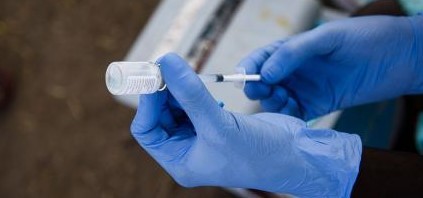The Ministry of Health has said it has officially applied for Coronavirus vaccines to protect the most vulnerable citizens of South Sudan from the pandemic.
Speaking during a press briefing yesterday, Dr. John Rumunu, the director-general of preventive health services said the Ministry of Health is in its final stages of importing the vaccine.
“Now WHO has already given a word concerning Pfizer and Moderna (vaccines) for countries to use and that the safety and efficacy have reached WHO standards,” Dr. Rumunu said. “I am happy to announce that South Sudan is now part of the COVAX facility.”
Dr. Rumunu said South Sudan has already submitted part one confirming participation in COVAX facility and is remaining with part two of the application.
“In the application, we have already indicated the vulnerable population, we have health workers, we had elderly people, we have persons with underlying factors especially diabetes, persons living with HIV/AIDS, IDPs, teachers and also economically active population that is between 25 and 40 years of age,” he added.
COVAX is the vaccines pillar of the Access to COVID-19 Tools (ACT) Accelerator.
The ACT Accelerator is a ground-breaking global collaboration to accelerate the development, production, and equitable access to COVID-19 tests, treatments, and vaccines.
COVAX is co-led by Gavi, the Coalition for Epidemic Preparedness Innovations (CEPI) and WHO. Its aim is to accelerate the development and manufacture of COVID-19 vaccines and to guarantee fair and equitable access for every country in the world.
South Sudan cases have been increasing by 8 percent in the last few days, initially, it used to be 2 percent according to Dr. Rumunu.
As of yesterday, South Sudan registered a total of 3,589 confirmed cases with 63 deaths.
In early December, the United Kingdom became the first country in the world to start administering its citizens with a fully trailed and tested COVID-19 vaccine, followed by several other countries.
In most countries, the vaccines are being administered, to healthcare workers and long-term care patients.



